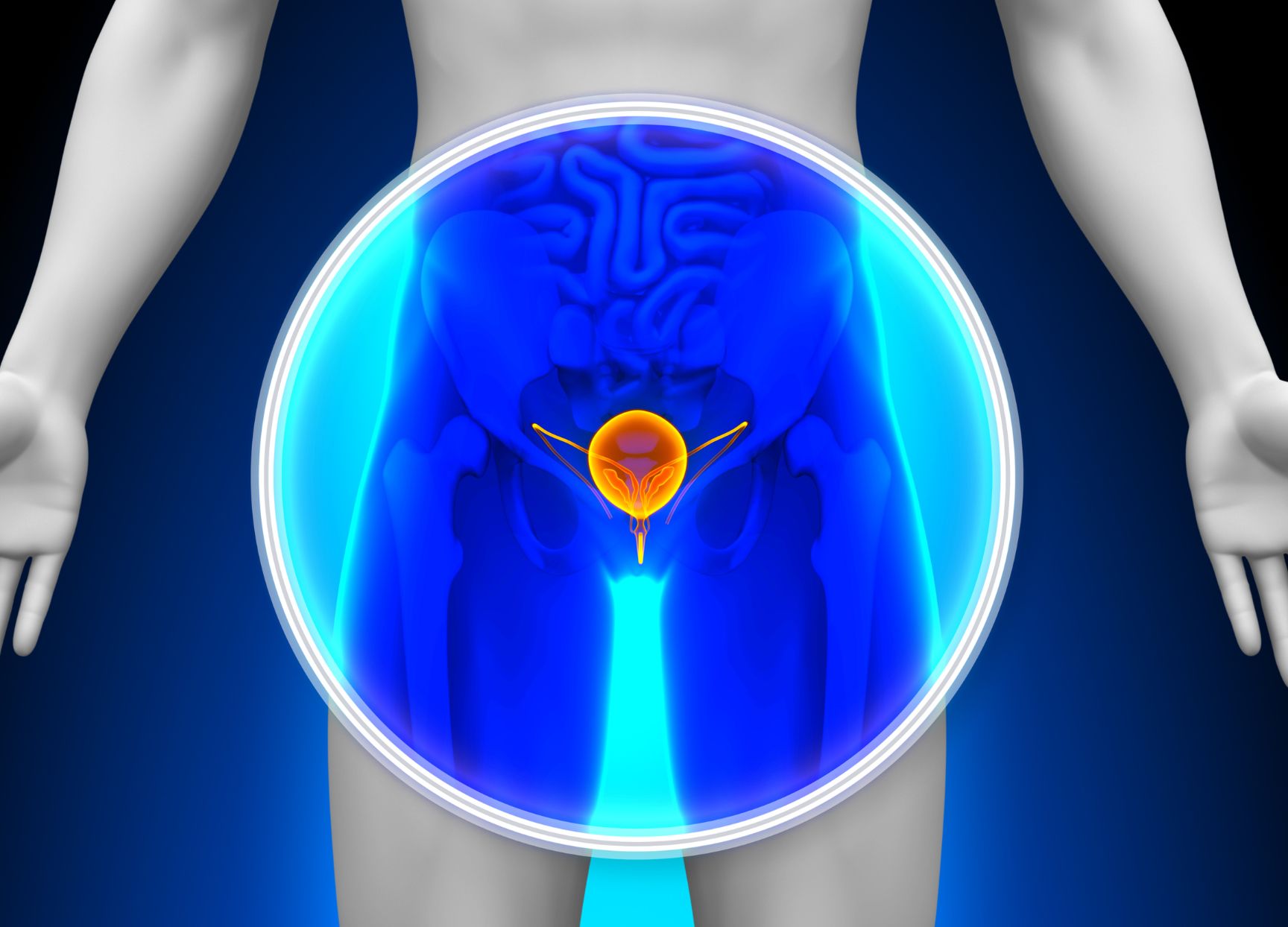Mr Ahmed Ali
Consultant Urological Surgeon
Specialist expertise: Men's Health, Urology, Urothelial Cancer, Prostate Cancer, Kidney Stones, Testicular Cancer, Urinary Infection, Paediatrics.
Bladder cancer is the 11th most common cancer in the UK, affecting around 10,000 people every year.

Your bladder is a hollow, triangle-shaped, balloon-like organ in the lower part of your abdomen and is responsible for storing urine.
Bladder cancer is a form of cancer where the cells in the lining of the bladder mutate and change, resulting in tumours. This type of cancer is relatively rare, accounting for 3% of cancer diagnoses in the UK.
Urothelial carcinoma, also known as urothelial carcinoma or transitional cell carcinoma (TCC), is the most common type of bladder cancer. Less common types of bladder cancer are squamous cell carcinoma, adenocarcinoma, small cell carcinoma and sarcoma.
If you are diagnosed with bladder cancer, your consultant will make you aware of the type of cancer you have, as this will affect your treatment plan.

The most common symptom of bladder cancer is blood in your urine (haematuria).
This can be blood that is visible, or it can be non-visible blood that is identified on a urine dipstick by a nurse or doctor.
Blood in your urine can be caused by a number of things and the majority of people who notice this will not have bladder cancer. However, if you do notice blood in your urine it’s important to see a healthcare professional for investigations, as the earlier bladder cancer is diagnosed the higher the likelihood of curing it.
Other signs and symptoms of bladder cancer to be aware of include:
Frequent urination
Pain or burning during urination (dysuria)
Feeling the need to urinate when your bladder isn’t full
Urinating often during the night
Recurring bladder infections
If the cancer has spread beyond the bladder to other parts of the body, it can cause the following symptoms:
Inability to urinate
Lower back pain
Tummy pain
Bone pain or tenderness
Unintentional weight loss and loss of appetite
Swelling in the feet
Fatigue

As with many other types of cancer, smoking tobacco is the largest cause (50%) of preventable bladder cancer in the UK.
Other factors that can increase your risk of developing bladder cancer include:
Age - bladder cancer is more common in people 60
Sex - bladder cancer is more common in men than in women
Family history of bladder cancer
Exposure to chemicals - certain chemicals used in dyes, rubber, leather, paint, some textiles and hairdressing supplies may increase the risk of bladder cancer
Previous cancer treatment - radiotherapy to the pelvis and certain chemotherapy drugs may increase the risk
Repeated urinary tract infections (UTIs) and untreated bladder stones
Bladder schistosomiasis - an infection caused by a parasite found in Africa, Asia, South America and the Caribbean
Chronic catheter use
There are a several tests which may be used to make a diagnosis of bladder cancer, including:
Urinalysis - this test analyses your urine to look for traces of blood, rule out infection and look for cancer cells.
Blood tests - these may be required to check your kidneys and liver function and to measure the number of blood cells in your blood.
Cystoscopy - a thin tube with a camera and light on the end is passed through the urethra and into the bladder to check for signs of cancer. Small biopsies may be taken from any abnormal areas to check the cells for changes.
If you have been diagnosed with bladder cancer, your consultant may perform a transurethral resection of the bladder tumour (TURBT). This procedure is done to remove tumours from the bladder for additional tests, and can also be a part of your treatment to remove tumours before they can invade the muscle wall.
Imaging scans including Ultrasound scan, CT, MRI and PET-CT scans may also be done to get a more detailed picture of your bladder as well as other areas of your body to see if the cancer has spread.
As well as confirming a diagnosis of bladder cancer, these tests will help your consultant identify the type of cancer present and how advanced it is. This will inform your treatment plan so that they can provide you with the most effective therapies possible.
At OneWelbeck, we pride ourselves on working as a multidisciplinary team (MDT). By sharing our expertise we ensure that if you are diagnosed with bladder cancer you have access to the best possible care.
The most effective treatment for bladder cancer depends on the type you have, the stage and your general health.
Generally, treatment for bladder cancer can include one or a combination of the following; surgery, radiotherapy, chemotherapy, targeted drug therapy, immunotherapy.
Before you start treatment, your consultant will talk you through the treatment you’ll need and explain any side effects.
Currently selected day
Available consultations